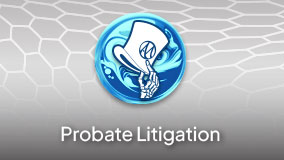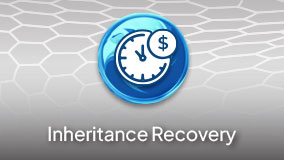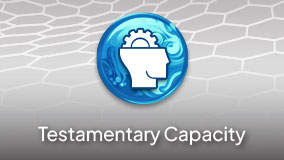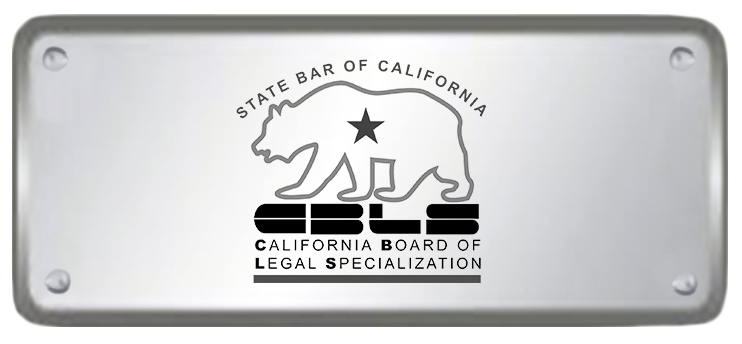TESTAMENTARY CAPACITY IN CALIFORNIA
In California, testamentary capacity is a vital element in the creation of a valid will or trust. It ensures that individuals possess the necessary mental capacity to make informed decisions regarding the distribution of their estate. By understanding the legal standards and factors considered in determining testamentary capacity, individuals can make informed decisions when creating their estate plans.
Until proven otherwise, the default is that the person has capacity to do what they want with their estate plans. Overcoming this presumption requires scrutiny of the Trustors’ mental capabilities and the existence of external pressures into making their decisions.
Testamentary capacity refers to an individual’s mental ability to understand and execute a valid will or trust. It is crucial because it ensures that testators have the necessary capacity to make informed decisions about the distribution of their assets upon death. By setting clear standards, the law aims to safeguard against undue influence, fraud, or mistakes in the creation of estate plans.
What are the Legal Standards for Testamentary Capacity in California?
In California, the legal standard for testamentary capacity is outlined in both Section 812 and Section 6100.5 of the California Probate Code. Depending on the type of document (Will or a Trust) the different sections of the Probate Code will govern the requisite capacity needed for the creation of that particular document. According to this provision, a person is considered to have testamentary capacity if they fulfill the following requirements at the time of making their will:
AGE:
The testator must be at least 18 years old, except in specific circumstances where minors are allowed to make a will, such as being married or serving in the military.
MENTAL CAPACITY:
The testator must possess sufficient mental ability to understand the nature and extent of their property, the natural objects of their bounty (e.g., their family members and loved ones), and the disposition they are making in their will.
What are the Factors Considered in Determining Testamentary Capacity?
To determine testamentary capacity, California courts consider several factors that help evaluate the testator’s mental state and ability to make a will. The existence of a cognitive evaluation from a medical provider will often provide valuable information in the question of whether the individual maintained the requisite capacity. While the law does not require perfect mental health, the testator must possess a certain level of understanding and judgment. Some of the factors considered include:
UNDERSTANDING THE NATURE AND EXTENT OF PROPERTY:
The testator must be aware of the nature and extent of their assets, including real estate, financial holdings, and personal possessions. Believing that they only have an estate valued at $100,000 when in reality they own $1,000,000 could bring into light the testator’s lack of perspective into their estate and what the implications of their plan might be having on their beneficiaries.
KNOWLEDGE OF FAMILY AND LOVED ONES:
The testator should have an understanding of the family members who might reasonably expect to be included in their will and the potential impact of their decisions on these individuals. Forgetting you have a child or a grandchild could result in the entire plan being disregarded.
AWARENESS OF THE DOCUMENT’S DISPOSITION:
The testator must comprehend the distribution plan outlined in their estate plan, including who will receive what portions of their estate.
ABSENCE OF DELUSIONS OR MENTAL DISORDERS:
While mental disorders or illnesses alone do not invalidate testamentary capacity, the testator should be free from delusions or hallucinations that substantially affect their decision-making.
ABILITY TO FORMULATE RATIONAL DECISIONS:
The testator must exhibit the ability to reason, analyze information, and weigh the consequences of their decisions.
Challenging Testamentary Capacity
In some cases, interested parties may contest the validity of a testamentary document by challenging the testator’s testamentary capacity. Common grounds for such challenges include allegations of mental incapacity, undue influence, fraud, or coercion. If a document is successfully challenged, it may be declared wholly or partially invalid.
To challenge testamentary capacity, the burden of proof lies with the party contesting the document. They must demonstrate, through evidence and testimony, that the testator lacked the necessary mental capacity at the time of executing the document. This evidence may include medical records, expert witness testimony, and statements from individuals who interacted with the testator during the relevant time period.
How Can an Attorney Help Me with Testamentary Capacity in California?
The estate planning and probate attorneys at Antonyan Miranda can provide invaluable assistance in matters related to testamentary capacity in California. Here are some ways our attorneys can help:
LEGAL EXPERTISE:
Our attorneys are well-versed in the laws and regulations governing testamentary capacity in California. We can explain the legal requirements in detail, ensuring that you understand what is necessary to create a valid estate plan.
ESTATE PLANNING ADVICE:
Beyond testamentary capacity, our attorneys can assist with comprehensive estate planning. We can help you create a thorough estate plan that reflects your wishes, minimizes tax liabilities, and addresses other important considerations.
EVALUATION OF CAPACITY:
Our attorneys can assess your mental capacity and advise if additional remedial efforts are required before executing a testamentary document. We can ask you relevant questions, review your medical records if necessary, and consider other factors to make an informed assessment.
DOCUMENTATION AND RECORD-KEEPING:
To establish testamentary capacity, our attorneys can help ensure that proper documentation is in place. This may include medical assessments, affidavits from witnesses, and detailed notes about your mental state during the will drafting process. These records can be crucial in defending the validity of your will against potential challenges in the future.
MINIMIZING CHALLENGES:
Our attorneys can help anticipate potential challenges to your will based on testamentary capacity. We can advise you on strategies to minimize the risk of disputes or contestation, such as obtaining medical opinions or ensuring a clear and well-documented decision-making process.
INVALIDATING THE TRUST DOCUMENT:
Our attorneys can help on either side of the challenge to the document, whether asserting the trustor lacked capacity to make such a decision or defending the document as a legitimate will or trust. Seeking to invalidate a will or trust requires expertise in the nuances of the probate court, including requisite filing deadlines, formulating pleadings, interrogating witnesses, and obtaining medical records.
DEFENDING TRUST DOCUMENTS:
Challenges to Trust Documents are unfortunately common based on a beneficiaries disappointment in their inheritance (or lack thereof). If a challenge is brought to invalidate a Will or Trust, our attorneys can assist in the defense of the document in Court to uphold the decedent’s wishes and properly administer the will or trust.
Seeking legal counsel from the experienced attorneys at Antonyan Miranda can provide essential legal guidance, evaluate testamentary capacity, ensure proper documentation, and advocate for your interests in matters related to will drafting and estate planning in California. Their expertise and experience can help safeguard your wishes and protect your estate from potential challenges. Call Antonyan Miranda at 619-255-7744 to speak with one of our Concierge attorneys or visit us at www.expertprobatelaw.com.com for more information.
FOLLOW US!
TESTAMENTARY CAPACITY IN CALIFORNIA
In California, testamentary capacity is a vital element in the creation of a valid will or trust. It ensures that individuals possess the necessary mental capacity to make informed decisions regarding the distribution of their estate. By understanding the legal standards and factors considered in determining testamentary capacity, individuals can make informed decisions when creating their estate plans.
Until proven otherwise, the default is that the person has capacity to do what they want with their estate plans. Overcoming this presumption requires scrutiny of the Trustors’ mental capabilities and the existence of external pressures into making their decisions.
Testamentary capacity refers to an individual’s mental ability to understand and execute a valid will or trust. It is crucial because it ensures that testators have the necessary capacity to make informed decisions about the distribution of their assets upon death. By setting clear standards, the law aims to safeguard against undue influence, fraud, or mistakes in the creation of estate plans.
What are the Legal Standards for Testamentary Capacity in California?
In California, the legal standard for testamentary capacity is outlined in both Section 812 and Section 6100.5 of the California Probate Code. Depending on the type of document (Will or a Trust) the different sections of the Probate Code will govern the requisite capacity needed for the creation of that particular document. According to this provision, a person is considered to have testamentary capacity if they fulfill the following requirements at the time of making their will:
AGE:
The testator must be at least 18 years old, except in specific circumstances where minors are allowed to make a will, such as being married or serving in the military.
MENTAL CAPACITY:
The testator must possess sufficient mental ability to understand the nature and extent of their property, the natural objects of their bounty (e.g., their family members and loved ones), and the disposition they are making in their will.
What are the Factors Considered in Determining Testamentary Capacity?
To determine testamentary capacity, California courts consider several factors that help evaluate the testator’s mental state and ability to make a will. The existence of a cognitive evaluation from a medical provider will often provide valuable information in the question of whether the individual maintained the requisite capacity. While the law does not require perfect mental health, the testator must possess a certain level of understanding and judgment. Some of the factors considered include:
UNDERSTANDING THE NATURE AND EXTENT OF PROPERTY:
The testator must be aware of the nature and extent of their assets, including real estate, financial holdings, and personal possessions. Believing that they only have an estate valued at $100,000 when in reality they own $1,000,000 could bring into light the testator’s lack of perspective into their estate and what the implications of their plan might be having on their beneficiaries.
KNOWLEDGE OF FAMILY AND LOVED ONES:
The testator should have an understanding of the family members who might reasonably expect to be included in their will and the potential impact of their decisions on these individuals. Forgetting you have a child or a grandchild could result in the entire plan being disregarded.
AWARENESS OF THE DOCUMEN’TS DISPOSITION:
The testator must comprehend the distribution plan outlined in their estate plan, including who will receive what portions of their estate.
ABSENCE OF DELUSIONS OR MENTAL DISORDERS:
While mental disorders or illnesses alone do not invalidate testamentary capacity, the testator should be free from delusions or hallucinations that substantially affect their decision-making.
ABILITY TO FORMULATE RATIONAL DECISIONS:
The testator must exhibit the ability to reason, analyze information, and weigh the consequences of their decisions.
Challenging Testamentary Capacity
In some cases, interested parties may contest the validity of a testamentary document by challenging the testator’s testamentary capacity. Common grounds for such challenges include allegations of mental incapacity, undue influence, fraud, or coercion. If a document is successfully challenged, it may be declared wholly or partially invalid.
To challenge testamentary capacity, the burden of proof lies with the party contesting the document. They must demonstrate, through evidence and testimony, that the testator lacked the necessary mental capacity at the time of executing the document. This evidence may include medical records, expert witness testimony, and statements from individuals who interacted with the testator during the relevant time period.
How Can an Attorney Help Me with Testamentary Capacity in California?
The estate planning and probate attorneys at Antonyan Miranda can provide invaluable assistance in matters related to testamentary capacity in California. Here are some ways our attorneys can help:
LEGAL EXPERTISE:
Our attorneys are well-versed in the laws and regulations governing testamentary capacity in California. We can explain the legal requirements in detail, ensuring that you understand what is necessary to create a valid estate plan.
ESTATE PLANNING ADVICE:
Beyond testamentary capacity, our attorneys can assist with comprehensive estate planning. We can help you create a thorough estate plan that reflects your wishes, minimizes tax liabilities, and addresses other important considerations.
EVALUATION OF CAPACITY:
Our attorneys can assess your mental capacity and advise if additional remedial efforts are required before executing a testamentary document. We can ask you relevant questions, review your medical records if necessary, and consider other factors to make an informed assessment.
DOCUMENTATION AND RECORD-KEEPING:
To establish testamentary capacity, our attorneys can help ensure that proper documentation is in place. This may include medical assessments, affidavits from witnesses, and detailed notes about your mental state during the will drafting process. These records can be crucial in defending the validity of your will against potential challenges in the future.
MINIMIZING CHALLENGES:
Our attorneys can help anticipate potential challenges to your will based on testamentary capacity. We can advise you on strategies to minimize the risk of disputes or contestation, such as obtaining medical opinions or ensuring a clear and well-documented decision-making process.
INVALIDATING THE TRUST DOCUMENT:
Our attorneys can help on either side of the challenge to the document, whether asserting the trustor lacked capacity to make such a decision or defending the document as a legitimate will or trust. Seeking to invalidate a will or trust requires expertise in the nuances of the probate court, including requisite filing deadlines, formulating pleadings, interrogating witnesses, and obtaining medical records.
DEFENDING THE TRUST DOCUMENT:
Challenges to Trust Documents are unfortunately common based on a beneficiaries disappointment in their inheritance (or lack thereof). If a challenge is brought to invalidate a Will or Trust, our attorneys can assist in the defense of the document in Court to uphold the decedent’s wishes and properly administer the will or trust.
Seeking legal counsel from the experienced attorneys at Antonyan Miranda can provide essential legal guidance, evaluate testamentary capacity, ensure proper documentation, and advocate for your interests in matters related to will drafting and estate planning in California. Their expertise and experience can help safeguard your wishes and protect your estate from potential challenges. Call Antonyan Miranda at 619-255-7744 to speak with one of our Concierge attorneys or visit us at www.expertprobatelaw.com.com for more information.


























